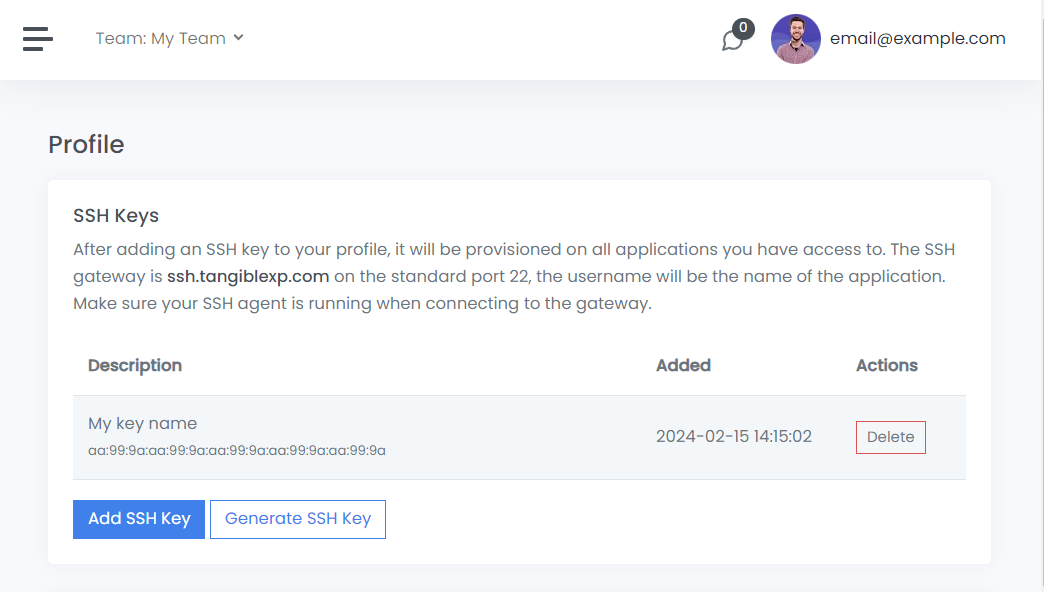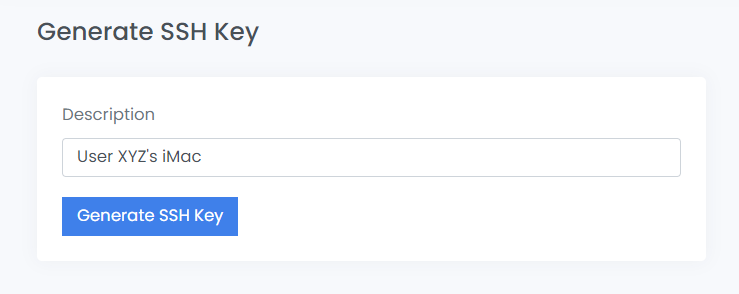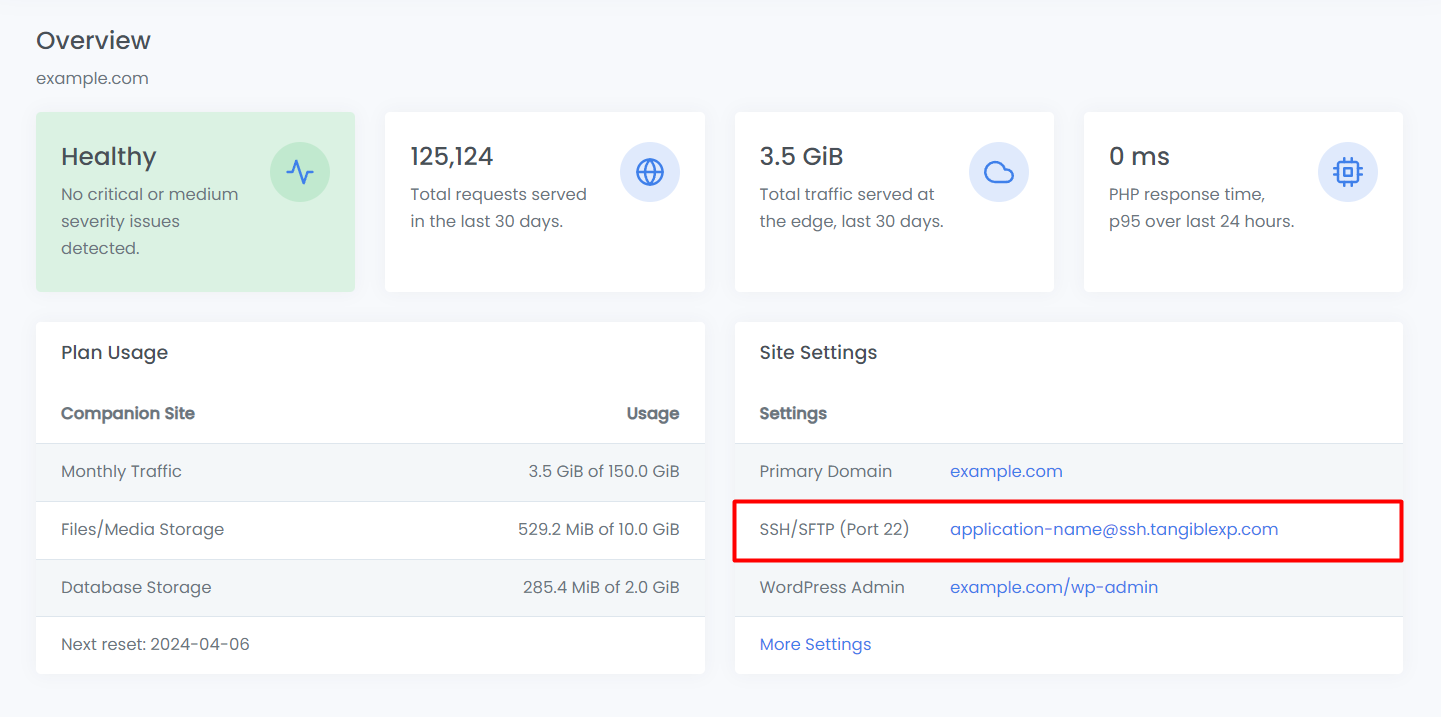Intro to Remote Connections via SSH
TangibleXP allows team members to connect to their applications securely via SFTP or SSH. Here's how to access your application file structure and WP-CLI.
Creating an SSH key pair
TangibleXP uses SSH key pairs to authenticate users connecting via SFTP, which are much more secure than a standard password. If you're unfamiliar with SSH protocol, you can think of it like two passwords: one that's saved in your TangibleXP account (this is called a public key) and the other that exists on your personal device (called a private key). These two keys are then combined to create a secure connection. Unlike a password, a private key is never sent across the web and lives safely on your device, which makes it a much more secure method of authentication.
To generate a key pair, navigate to your account by clicking your username in the top right. Then, under "SSH Keys," click "Generate SSH Key." You can also add your own SSH keys if you'd like to generate them yourself.

Give your key a descriptive name, such as the name of the device to which you'll be downloading the key.

Your public key will be added to your account and you'll be prompted to save your private key (a .pem file) on your device. You can save this anywhere, but it's common practice to save it in the .ssh folder in your user directory. This folder is generally found at \Users\your-username\.SSH.
Private SSH keys should never be uploaded to the web, backed up to the cloud, sent via email, or shared by any other means. They should be stored locally on your device. Sharing this key could compromise the security of your application.
Finding your connection details
Details for connecting via SFTP can be found on your application overview and application settings pages. Learn more about how to navigate to these pages in our account welcome documentation.

The provided info can be read as username@host. The port is omitted because TangibleXP allows remote connection via the default SSH port: 22.
The provided format can be passed to SSH clients directly to connect via CLI: